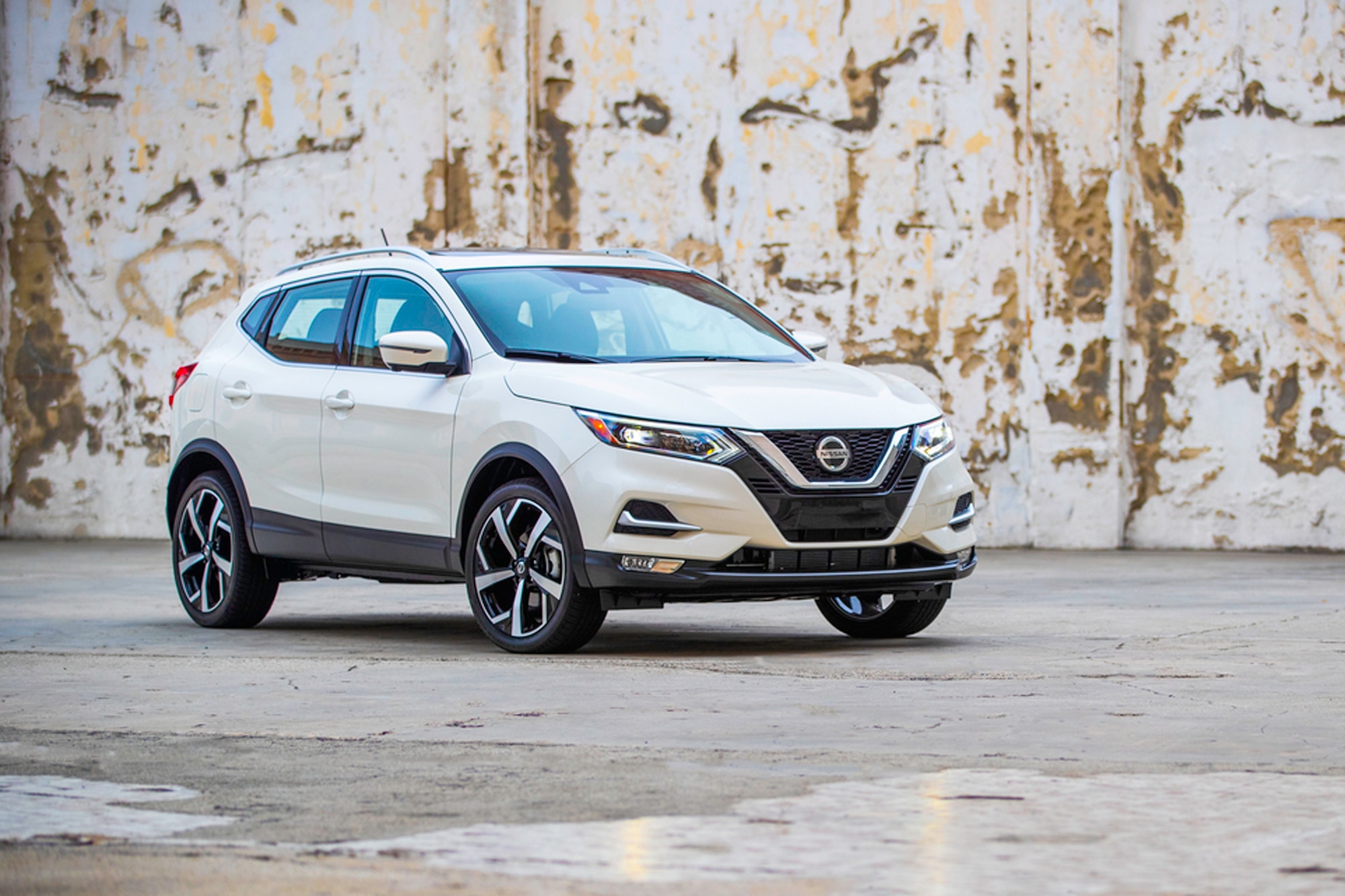What Is a Compact SUV?
These small crossovers offer car-like handling in a high-riding, boxy-looking package.
 Nissan
Nissan
Making up the bestselling segment in the U.S., compact SUVs and crossovers are essentially lifted station wagons. They have four doors, a liftgate in the back, and car-based underpinnings that can provide a civil, comfortable ride. Front-wheel drive and four-cylinder engines are standard on most models.
A few, including the Ford Bronco Sport and Jeep Cherokee Trailhawk, provide some off-road cred. The majority of the class, however, does not compete based on capability or handling characteristics, but rather modern cabin tech, premium interiors, driver-assistance features, and sleek but ubiquitous exterior design. While you’ll find compact crossovers in just about every automaker’s lineup, this article focuses solely on those from non-luxury brands.
Which Brands Sell Compact SUVs?
An easier question would be: which brands don't? Chrysler, Dodge, and Fiat are the only non-luxury brands without a compact SUV in their lineups. Some automakers even have more than one, such as Ford with its Bronco Sport, and Escape and Jeep with its Cherokee and Compass. In 2021, the Toyota RAV4, Honda CR-V, Nissan Rogue, Mazda CX-5, and Chevrolet Equinox were the most popular compact crossovers.
How Much Does a Compact SUV Cost?
The Mitsubishi Eclipse Cross is among the most competitively-priced vehicles in the class with a base of $24,940. Unless you count the $60,000-plus fuel-cell-powered Hyundai Nexo, the Jeep Cherokee is among the most expensive, starting at just under $36,000. Fully loaded compacts with leather, upgraded infotainment systems, optional powertrains (including hybrids), and large wheels approach $45,000.
How Big Is a Compact SUV?
Let's take a look at the most popular one, the Toyota RAV4. The 2022 model is 181 inches long, 73 inches wide, and 67 inches high. It sets the benchmark for the class, with most others falling within a couple of inches of these measurements. Every compact crossover has two rows of seats, typically with a decent amount of legroom in the back. As for cargo space, you can expect cubic footage to come in somewhere between the high 20s and mid-30s with the seats up, and high 50s to mid-70s with them folded.
What Kind of Fuel Economy Does a Compact SUV Get?
The off-road-oriented Jeep Cherokee Trailhawk and Ford Bronco Sport Badlands deliver combined fuel-economy ratings of 21 and 23 mpg respectively, which isn’t too far off from what more normcore compact SUVs see: the Volkswagen Tiguan and Jeep Compass achieve 25 mpg, while the Nissan Rogue and Subaru Forester hover around 30 mpg.
Plug-in hybrid versions of the Toyota RAV4 and Hyundai Tucson dominate the Environmental Protection Agency (EPA) ratings, with 94 MPGe (38 mpg with a depleted battery) and 80 MPGe (35 mpg). The regular-hybrid variants of those two crossovers plus those of the Honda CR-V and Ford Escape return about 40 mpg combined.
Written by humans.
Edited by humans.
 Clifford Atiyeh
Clifford AtiyehClifford Atiyeh is an independent writer, photographer, and creative consultant. He has reported for dozens of websites, magazines, and newspapers in his 20-year journalism career, during which he has tested more than 650 new vehicles. His automotive expertise focuses on product development, market analysis, and the litigation and legislation affecting the industry. Clifford is vice president of the New England Motor Press Association and runs a marketing consultancy.
Related articles
View more related articles